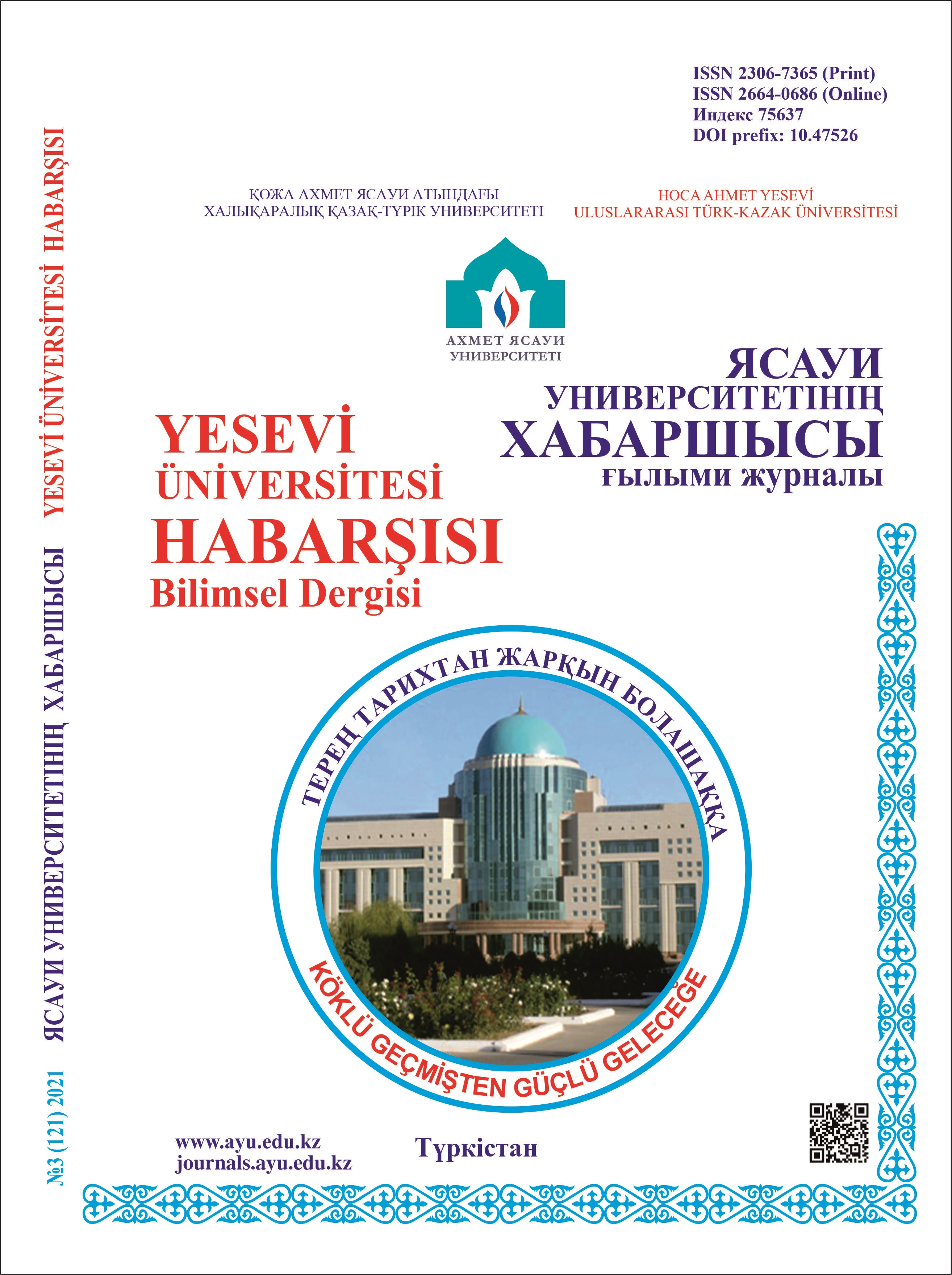БАСТАУЫШ МЕКТЕПТЕ АҒЫЛШЫН ТІЛІ САБАҒЫНДАҒЫ ГЕЙМИФИКАЦИЯ: ТИІМДІЛІГІ МЕН ҚОЛДАНУ МҮМКІНДІГІ
448 362
Кілт сөздер:
геймификация, ағылшын тілі сабағы, бастауыш мектеп, тиімділік, қолдану мүмкіндіктері, оқушылардың белсенділігі, мотивация.Аңдатпа
Геймификация – қазіргі уақыттағы білім беру технологиясындағы ең маңызды заманауи трендтердің бірі. Зерттеуде жалпы орта мектептегі бастауыш сыныптың ағылшын тілі сабақтарында геймификацияны қолданудың тиімділігін және оқушылардың мотивациясы мен олардың шетел тілін үйренуге деген қызығушылғын арттыру үшін геймификацияға негізделген цифрлық платформаларды қолданудың мүмкіндіктері қарастырылды. Kahoot+ premium және Quizizz цифрлық платформалардағы геймификацияға негізделген сабақтың нәтижесі және алдыңғы зерттеулердің де әсері салыстырылады.
Зерттеу жұмысымыздың эксперименттік бөлігі Шымкент қаласы және Түркістан облысындағы бастауыш сынып мұғалімдері мен бастауыш сынып оқушыларының қатысуымен өткізілді. Эксперименттік және бақылау топтарында жүргізілген бұл зерттеуге іріктемеге 30 бастауыш сынып оқушысы қатыстырылды. Және оның оң нәтиже берген көрсеткіштері кестелер және суреттер арқылы келтірілді.
Зерттеудің басты мақсаты ағылшын тілі сабақтарына геймификация элементтерін қосу арқылы оқушылардың белсенділігін, мотивациясын және жалпы оқу нәтижелерін жақсарта алады деген гипотезаны тексеру болып табылды. Осы зерттеуде қолданылған зерттеу әдістері сауалнамалар, бақылаулар және бағалаулар арқылы деректерді жинауды қамтитын сандық және сапалық тәсілдердің жиынтығын қамтиды. Талдау мен нәтижелер бөлімінде алынған мәліметтерге сәйкес кестелермен, диаграммалармен және статистикалық көрсеткіштермен толықтырылған теориялық талдаулар жасалды. Қорытынды бөлімінде бастауыш мектепте ағылшын тілін оқытуға геймификацияны енгізудің әлеуетті артықшылықтарын көрсететін зерттеу нәтижелеріне негізделген тұжырым берілген. Мақала зерттеудің нәтижесін талқылаумен және одан әрі зерттеу бағыттарын ұсынумен аяқталады.
Әдебиеттер тізімі
ПАЙДАЛАНЫЛҒАН ӘДЕБИЕТТЕР ТІЗІМІ / REFERENCES
Biçen H. and Kocakoyun S, Perceptions of students for gamification approach: kahoot as a case study // International Journal of Emerging Technologies in Learning (Ijet). 2018. – Vol. 13. – №02. – P. 72–93. https://doi.org/10.3991/ijet.v13i02.7467
Zhang S., Hasim Z. Gamification in efl/esl instruction: a systematic review of empirical research // Frontiers in Psychology. – 2023. – Vol. 13. https://doi.org/10.3389/fpsyg.2022.1030790
Callebaut W. Piaget among the Evolutionary Naturalists // Philosophica. – 1994. – Issue 54. – Р. 111–140.
Inayati N., Waloyo A. The influence of quizziz-online gamification on learning engagement and outcomes in online English language teaching // Journal on English as a Foreign Language. – 2022. – Vol. 12. – №2. – P. 249–271. https://doi.org/10.23971/jefl.v12i2.3546
Kabilan M., Annamalai N., Chuah K. Practices, purposes and challenges in integrating gamification using technology: a mixed-methods study on university academics // Education and Information Technologies. – 2023. – Vol. 28. – №11. – P. 14249–14281. https://doi.org/10.1007/s10639-023-11723-7
EF English Proficiency Index. [Electronic resource]. URL: https://www.ef.com/kz/epi/ (date of access 01.05.2023) 7. Uaidullakyzy E., Rizakhojayeva G., Sartayeva K., Zeinep B., Turmanov R., Rysbayeva G. Creating integration situations of students’ computer lesson and learning with gamification // International Journal of Emerging Technologies in Learning (Ijet). – 2022. – Vol. 17. – №19. – P. 207–223. https://doi.org/10.3991/ijet.v17i19.32177 8. Andrade P., Law E., Farah J., Gillet D. Evaluating the effects of introducing three gamification elements in STEM educational software for secondary schools // OzCHI '20: Proceedings of the 32nd Australian Conference on Human-Computer Interaction. December 2020. – P. 220–232. https://doi.org/10.1145/3441000.3441073
Jie Y., Zakaria A., Hassan H. The use of gamification in enhancing students engagement and performance in ESL speaking lessons // International Journal of Academic Research in Business and Social Sciences. – 2023. – Vol. 13. – №1. – P. 479–503. https://doi.org/10.6007/ijarbss/v13-i1/16205
Çinar A., Erişen Y., Çeliköz M. A mixed-method research on the effectiveness of using gamification elements in an online English course // International Journal of Educational Research Review. – 2022. – Vol. 7. – №4. – P. 280–291. https://doi.org/10.24331/ijere.1140960
Latkovska E. Cine A. Gamification elements in english lessons to encourage young learners’ communication in a foreign language // Human, Technologies and Quality of Education. Proceedings of Scientific. – 2022. – P. 650–659. https://doi.org/10.22364/htqe.2022.46
Al-Zuhair N., Alkhuzaim K. The effectiveness of a gamified electronic application in developing reading comprehension abilities among first-grade intermediate students in Saudi Arabia // Education Research International. – 2022. – Issue 2. – P. 1–12. https://doi.org/10.1155/2022/7677140
Annamalai N., Zakarneh B., Eltahir M., Alsalhi N., Zyoud S. An exploratory study of non-technological gamified lessons in a lithuanian esl classroom // International Journal of English Language and Literature Studies. – 2022. – Vol. 11. – №4. – P. 167–180. https://doi.org/10.55493/5019.v11i4.4664
Werbach K., Hunter D. For the Win: How game thinking can revolutionize your business. – Pensilvania, EEUU: Wharton Digital Press, 2012. – 148 р.
Chou Y.K. Gamification Design: 4 Phases of a Player’s Journey. [Electronic resource]. URL: https://yukaichou.com/gamification-examples/experience-phases-game/ (date of access 01.05.2023)
Jonna Koivisto, Juho Hamari, The rise of motivational information systems: A review of gamification research // International Journal of Information Management. – 2019. – Vol. 45. – Р. 191–210, https://doi.org/10.1016/j.ijinfomgt.2018.10.013
McCallum S. Gamification and serious games for personalized health // Stud Health Technol Inform. – 2012. – P. 85–96. doi.org/10.3390/sports12060168

